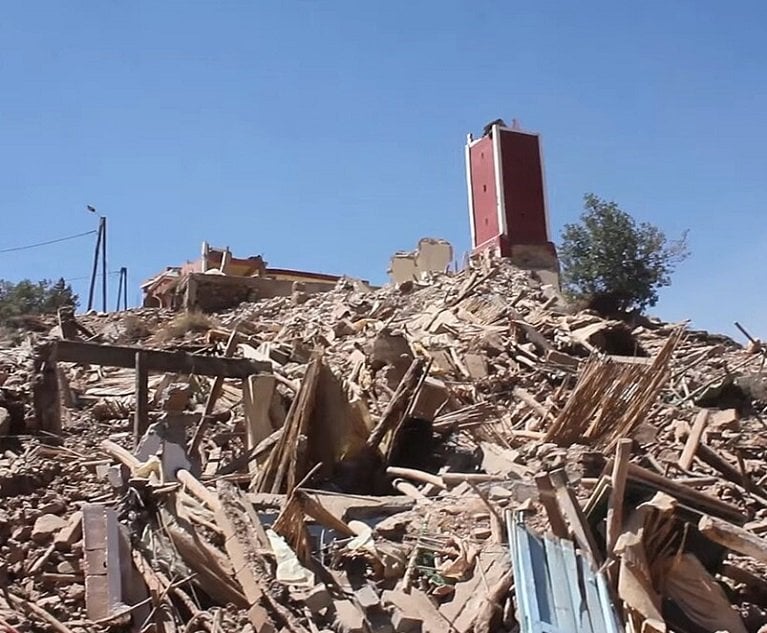 This image from Douar Agadir Jamaa, Tizi N'Test commune, Taroudant Province in south western Morocco provides a glimpse of the aftermath of the magnitude 6.8 earthquake that shook the country on Sept. 8, 2023. (Credit: alyaoum24/Wikipedia Commons)
This image from Douar Agadir Jamaa, Tizi N'Test commune, Taroudant Province in south western Morocco provides a glimpse of the aftermath of the magnitude 6.8 earthquake that shook the country on Sept. 8, 2023. (Credit: alyaoum24/Wikipedia Commons)
An economic and humanitarian crisis continues to mount in Morocco as the country assesses damage from the deadly magnitude 6.8 earthquake that rocked communities in and around Marrakesh on Fri., Sept. 8, 2023.
Recommended For You
Want to continue reading?
Become a Free PropertyCasualty360 Digital Reader
Your access to unlimited PropertyCasualty360 content isn’t changing.
Once you are an ALM digital member, you’ll receive:
- Breaking insurance news and analysis, on-site and via our newsletters and custom alerts
- Weekly Insurance Speak podcast featuring exclusive interviews with industry leaders
- Educational webcasts, white papers, and ebooks from industry thought leaders
- Critical converage of the employee benefits and financial advisory markets on our other ALM sites, BenefitsPRO and ThinkAdvisor
Already have an account? Sign In Now
© Touchpoint Markets, All Rights Reserved. Request academic re-use from www.copyright.com. All other uses, submit a request to [email protected]. For more inforrmation visit Asset & Logo Licensing.







